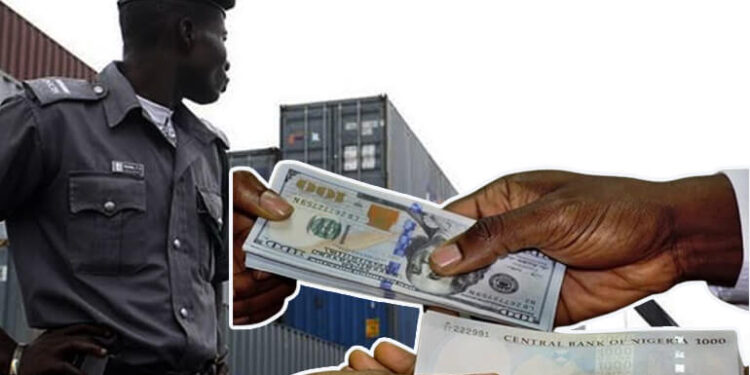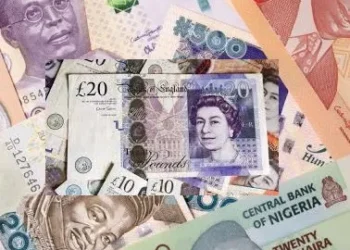The Nigerian Customs Service (NCS) has announced a revision in its tariffs and duties, aligning them with the latest changes in the foreign exchange rate. The updated rates are now accessible on the federal government’s single-window trade portal, reflecting adjustments in the NCS exchange rate.
According to information available on the portal, the NCS exchange rate has experienced a 3.43% increase, amounting to approximately N26.15. As of Sunday, the new rate stands at N783.174 per US dollar, indicating a notable uptick from the previous week’s rate of 757.023/$.
It’s crucial to note that the NCS is responsible for imposing customs duties in Nigeria, encompassing charges levied on imported goods and various other tariffs. The rates for these duties vary depending on the specific items and typically range from 5% to 35%, determined by the prevailing harmonized commodity and coding system (HS code).
Recent Developments
The adjustment in the exchange rate comes on the heels of the naira’s appreciation against the USD in the official market window, trading at N780.14/$1 on Friday. This surge represented a substantial 27.77% increase. However, the positive momentum in the official window did not translate to the parallel market, where the naira depreciated by 3.54%, quoted at N1130/$1. Peer-to-peer traders, on the other hand, quoted around N1100/$1.
In October, the Central Bank of Nigeria (CBN) made a significant move by removing restrictions on 43 items that were previously barred from accessing foreign exchange. This decision led to a surge in demand for forex in the official window, also known as NAFEM.
Despite these developments, the naira has experienced a decline of over 40% in its value since the initiation of CBN’s reforms in June. The Federal government has been grappling with efforts to stabilize the foreign exchange market in recent months.
During the Nigeria Economic Summit, it was disclosed that there is a visible line of sight to funds amounting to around $10 billion in a matter of weeks. However, a significant challenge remains as foreign investors have faced difficulties repatriating funds invested in Nigeria, resulting in an estimated backlog of around $7 billion.
The ongoing fluctuations in exchange rates and foreign exchange challenges underscore the complexities faced by Nigeria in stabilizing its currency and maintaining a favorable economic environment. Investors and stakeholders will closely monitor further developments to gauge the impact on trade and investment in the region.









